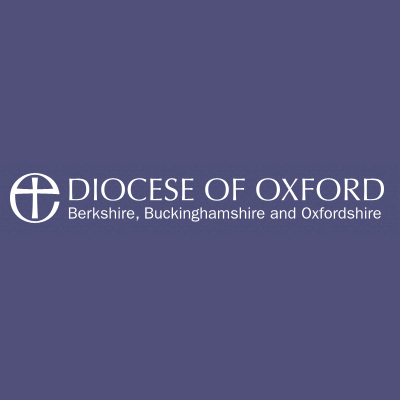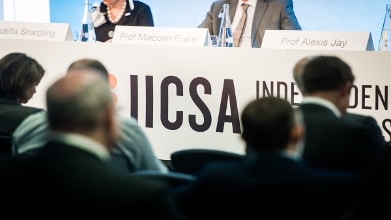
Every so often we read a story in the press which makes us feel pity and anger at the same time. A story that can inspire these contradictory feelings in us might typically involve a young man who has got on the wrong side of the law after joining a gang on an urban housing estate. The gang has then led him into a culture of violence and anti-social behaviour. This culture that he has now made his own has had the result that he is being charged with carrying an offensive weapon and dealing in drugs. There is public anger at this behaviour and this anger calls out for punishment. At the same time there is another kind of anger inside us. This is the anger at the overall situation which incubates a life with so little to look forward to in the future. This second strand of anger is suffused with pity as one thinks of a mother who may have struggled against all the odds to keep a young boy away from the fascinations of gangs and knives.
From the point of view of the law, such cases have no ambiguity. The young man, having reached the age of maturity, must face the full legal consequences of his actions. If he is locked up in prison, our first kind of anger is assuaged. The verdict appeals to our sense of justice being vindicated. But, as we all know, our feelings in a case like this are far from simple. Assenting to this legal response to the crime does not satisfy and assuage all that we really feel in a case like this.
The feelings of a sympathetic bystander towards a case of gang violence are not easy to resolve. Although justice, in accordance to the laws of the land, has been meted out, we know or suspect that there are many aspects to the story which will never be revealed to the public domain. There will probably be a combination of many burdens that the young man has had to carry – poverty, addiction, failure in parenting, an absent father, a poor education. In short, a young person has faced every form of deprivation. The way he has behaved is far from surprising. He is guilty, but the guilt he bears is somehow different from the guilt of a privileged individual who, from a place of privilege, has deliberately chosen to kick over the traces.
The clear calm declaration by the legal system that a particular individual is guilty of a crime, provides the rest of us with a label to place on the condemned person. But even now we should hesitate before placing the sentenced individual into a place that is utterly apart from the position we occupy. The deeply unsettling question that we may ask in this situation is this. How would we, having travelled along the same trajectory of life chances, have behaved in this situation? How can we be sure that, just because of our more favoured circumstances, we would have avoided this kind of behaviour which has led to time in prison?
How many of us have travelled in our imagination to a place of cultural and spiritual emptiness which is occupied by many of the very poor? How would we cope? If we had stripped away every advantage we may possess in terms of education, intelligence, emotional stability and mental health, where would we be? We would, no doubt, be a different person. Would that difference make us still able to function as a moral being and is there a place that is beyond conscience and human sensitivity? I am not aware of anyone who really discusses this conundrum. I for one would never want to carry a knife or indeed use any form of violence against others. Yet I can imagine being suffused with violent anger against other people and prepared to defend family and home if under attack. Because this has not happened, these emotions have been kept back. Sometimes they might be artificially and temporarily stirred by reading a novel or watching a film; they do not form part of day to day reality.
The fear that I carry, is that were I to be stripped of all my advantages of education and upbringing, I would not be any different from the convicted gang member. This raises all kinds of questions about whether Christian virtue is equally accessible for all. Is a learned set of responses which some are taught, and some not? The story of Adam and Eve seemed to imply a universal moral code available for all. Life experience tells me that it is likely far more complicated than that.
There is another group of people in society who make, from my perspective, perverse but perhaps understandable choices. These are the individuals who find themselves victims of cults – harmful religious or political groups. At some point in their lives, they have made a choice to become part of this kind of group, unless they were born into them. The choice to become part of any such group is deemed by the law to be an adult choice and thus they can be ignored unless, in rare circumstances they are led to do something criminal. As adults the only protection the law offers is to protect them from open obvious harm. Most cultic-type groups stay the right side of the boundary and do not abuse their members in an open way. But, over a period, harm does take place and cult victims will quietly and subtly be deprived of many of the things that make them fully human. They will typically lose self-esteem, confidence. independence of thought and creativity. Some will be sexually abused, and the majority will lose all their money. Eventually they may end up as clones of the group, tied into the psychological profile of the leader. As such they will be hard to reach by people outside the group. Conversations will be stilted and lacking in spontaneity, humour or warmth. It is tempting to walk away from such people because they have made themselves so hard to reach.
Any success in communicating with people in closed groups, gangs or cults, will require us to exercise our imaginations to understand how they have arrived where they are. We may be able to see that what they have become, is largely because of the circumstances of their lives. Having seen this, we will be more reluctant to draw a boundary between our world and theirs. We all to some degree embody the outworking of our life stories. Sometimes, serious wrong-doing emerges, and this has to be punished. But who can really say where the boundary lies between a predictable response to a poor background and actual evil? Fortunately, no one, not even in the justice system, is required to make that precise judgement. Equally no one is required to determine how much, if any, responsibility a spiritually abused person has to carry for their original decision to join the harmful group. The focus should always be, not on laying any blame, but on finding ways of helping them leave, if that is what they want to do. Supporting such people in an attitude of total non-judging acceptance is the focus of this blog. This blog is also committed to making this phenomenon of spiritual abuse and bondage better understood. We have the example of Jesus who called individuals to a new outlook and a new beginning and all that is implied in the rich word metanoia. In our longing to help people who are in different ways trapped by gang entrapment or group bondage, we too can be enablers of the same metanoia.








